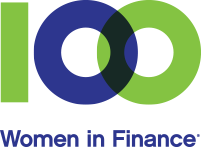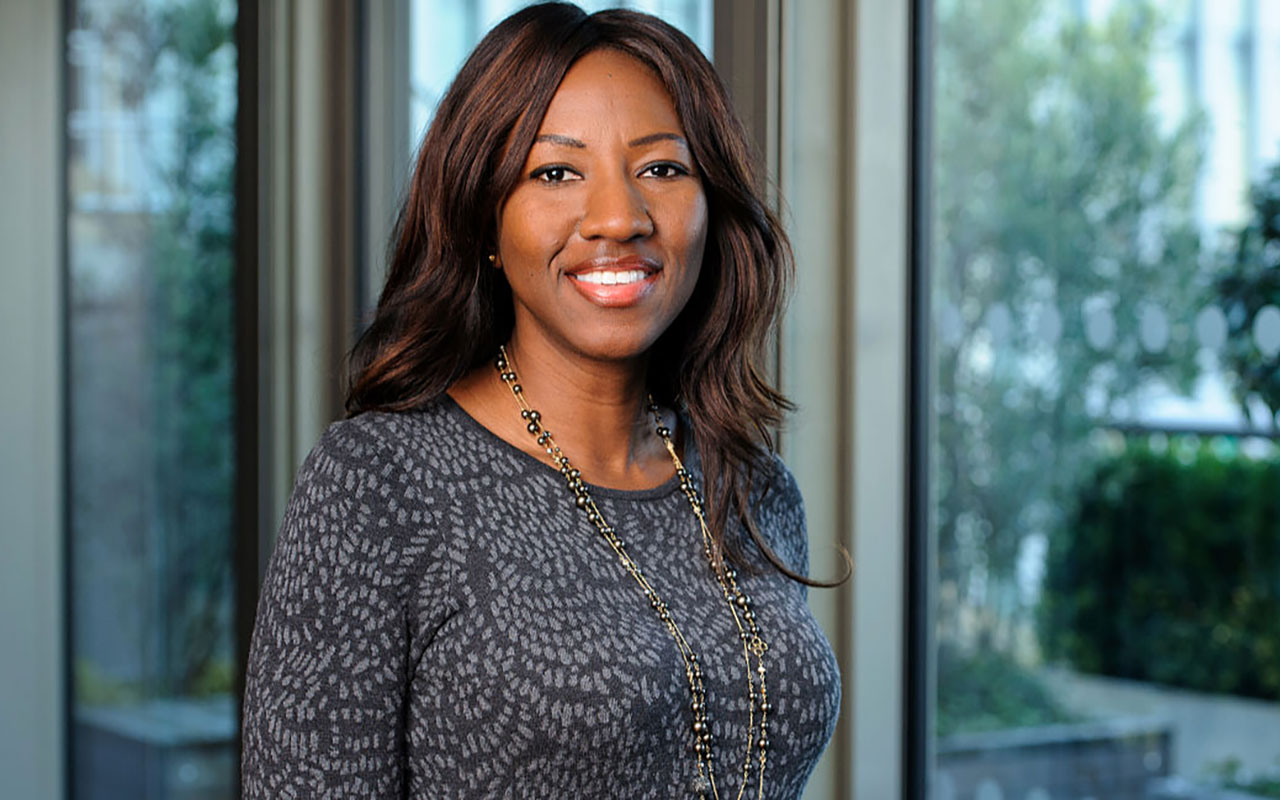Lynn Strongin Dodds talks to Chioma Okoye, Managing Director, European Institutional Credit at Tradeweb about taking time out, learning new skills and maintaining a positive attitude.
Originally published in Best Execution, by Ian Rycott
Even in today’s environment very few people, particularly women, would put a three plus year sabbatical on their LinkedIn page. However, there it is on Chioma Okoye’s page sandwiched between her current role as Managing Director, European Institutional Credit at Tradeweb and her over ten years at Goldman Sachs. It is a powerful message that says it is ok to push the pause button to rethink the career path, re-skill, focus on family, or do all the above.
“It was a very personal decision. At Goldman, I travelled extensively, had autonomy early on in my career and worked with incredibly bright, motivated and driven people for 11 years,” says Okoye, who joined the US-based investment bank in London as a new graduate following a summer internship the previous year. “At that point in my life, I had gotten married and become a mother. I wanted to spend more time with my kids when they were toddlers, as well as explore other interests.”
Those interests included launching a small, part-time fashion business as well as sharpening her project management skills with PRINCE2 foundation and practitioner level qualifications. “I had always planned to return to work full-time, but I also wanted to acquire new skillsets for whatever the next role would bring. I have always enjoyed accessorising with jewellery to elevate an outfit and make it unique, but running my own business also taught me entrepreneurial skills and put my social skills to good use.”
The experience as well as the PRINCE2 course held her in good stead when she did re-join the workforce in 2015 as Director, Emerging Markets at Tradeweb. She was responsible for building out the emerging product which included working on Bond Connect, an initiative launched in 2017 established by CFETS, the National Interbank Funding Centre and Hong Kong Exchanges and Clearing, to enable overseas funds to buy onshore bonds through Hong Kong.
Tradeweb was the first, and remained the only offshore platform to link with the Bond Connect programme for about a year and a half, providing foreign investors access to China’s mainland fixed-income market. “I was involved in the early stage of developing China’s Bond Connect initiative with local stakeholders in Hong Kong and China,” says Okoye. “It involved engagement and collaboration with multiple parts of the ecosystem – buyside, custodians, liquidity providers, the legal community and index providers over an 18-month period to develop such an innovative project. It was a unique experience with so many different aspects.”
While Bond Connect might have been a different venture, Okoye already gained a deep understanding of the multi-faceted challenges and opportunities within many emerging markets while working at Goldman. She spent around seven years as Executive Director, Emerging Markets Cross-Product Sales, where she was part of a ten person sales team based in London covering European and UK money managers, pension funds, hedge funds and banks for the full range of emerging market fixed income and FX products.
She then moved onto a new role as Executive Director, Emerging Markets E-Commerce, which comprised setting up a e-trading strategy for the emerging markets business in Europe, Middle East and Africa (EMEA). This not only included developing a blueprint for expanding the firm’s EM e-trading footprint but also liaising with investors and salespeople as well as analysing, tracking and reporting on the growth of each e-trading business line within EM.
Today, Okoye’s attention is fully focused on product managing European credit where her role is “to provide flexible and innovative ways to trade investment grade and high yield corporate bonds for institutional investors,” she says. “We take new protocols and features from initial concept to market launch, as well as enhance existing ones. The most important thing is not to develop in a vacuum, and we have many ideas coming from the sell- and buyside. There is no one-size-fits-all solution, but we want to cater to the different needs of our clients during different market conditions.”
In the current crisis, Okoye notes that portfolio trading has become popular because it is a way to trade large baskets of bonds discreetly in a single transaction with a single counterparty. Launched last year in the US, it was then expanded to European credit where it has gained traction, taking global volumes to the current $130+ bn.
“Although portfolio trading is not new,” Okoye says, “Tradeweb was the first venue to offer an end-to-end electronic workflow solution in the institutional space. The main benefits for the buyside are liquidity and efficiency. Buyside customers gain improved access to liquidity because they can put together a basket of bonds with varying liquidity profiles, send it out to dealers in competition or not, and receive prices back on every line item within minutes to a few hours.”
She adds, “Once the trade is executed electronically, every line item can be automatically fed back to the client’s order management system, providing a time-stamped audit trail, a portfolio flag, and covering reporting requirements. This amounts to a huge efficiency gain, not only in terms of the time saved, but in terms of certainty of execution, market risk mitigation, operational risk reduction, and transaction cost optimisation.”
Covid-19, of course has not only changed the way traders execute but also how clients and employees interact. Tradeweb was prepared and the transition to working from home was seamless. “Ultimately, we are a technology company, so we were prepared for virtual work. Both our people and systems managed to switch over to online very quickly, and then immediately focus on helping our clients with their own challenges,” she says. “I used to travel frequently for work, and we want ensure that we have the same level of vibrancy and engagement to our interactions now that they have become virtual. You have to listen deeply and actively to customers and market participants, if you want to adapt to the constantly changing landscape in a timely manner.”
Aside from her day to day role, Okoye is active in promoting diversity and inclusion throughout the firm. “I’ve been fortunate in that I have been able to realise my ambitions without facing any significant obstacles that felt related to my gender or race, but there is a lot more to be done overall, because this has obviously not been everyone’s experience,” she says.
She adds, “I am a member of the Tradeweb Women’s Network, whose objective is to ensure that all women throughout the organisation have the appropriate support and access to all opportunities at the firm. We recently hosted an event where we and our clients got to listen to the hugely inspiring Dame Kelly Holmes, who said that no one’s life is without challenges and that we all have had setbacks. However, it is how you frame and learn from your experiences that makes all the difference. Instead of internalising them, it is better to adopt a positive attitude so that you can move forward.”
Original article published October 8, 2020:
https://www.bestexecution.net/european-women-in-finance-chioma-okoye-staying-in-the-frame/

